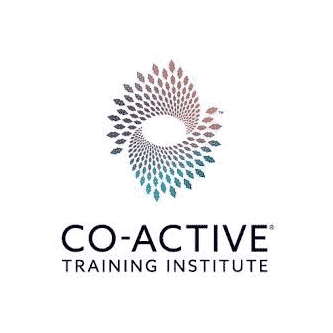Driving Organizational Change With Internal Coaching Programs
Whether in sports or business, a coach’s role is to bring out the best in others, guide them to where their strengths create the greatest impact, and provide them with tools and strategies to continually reach greater heights. Because of this, an internal company coaching program has the power to drive real change within your organization.
The greatest strength of any organization is its people. The problem is, few people are bringing their whole selves into their work and leadership. This isn’t a failing of individuals, but rather a habit of society. We have this idea that we need to split into a “work self” and “home self”. That’s great for dressing appropriately, using business etiquette and so on, but terrible for our creativity, passion, ingenuity, problem-solving, relationship building, and all those great qualities of A-players.
A strong organizational coaching program works to strengthen your organization by strengthening the people within it, growing within them the tools to bring their best selves forward in all aspects of work and life.
What is an Organizational Coaching Program?
It’s a coaching program that focuses on broad organizational objectives, major transitions, culture shifts, developing leadership, increasing engagement and retention, or any other goal or challenge that impacts the overall business. Coaches work with both individuals and groups within the business to continually align efforts and decisions with the overall goal.
Some organizations may hire full time coaches, train existing leaders to function as coaches, or partner with an external coaching service like one of these to design and run their program. In some cases, an external coaching service will come in to run the program initially, but part of that effort will be to create a coaching culture and train leaders to take over and drive the coaching program long term.

What are the Benefits to Companies with Internal Coaching Programs?
The core of all coaching – life, leadership, executive, team performance and so on – is growth.
It’s about getting full clarity into where you are right now, uncovering strengths, talents and passions, getting real about challenges and roadblocks, and creating a vision of what you want to achieve. Once that’s in place, a strong coaching program focuses on taking real steps, every single day, towards breaking down barriers, bringing those uncovered strengths forward, and moving consistently towards that big picture vision. A good coach will act as your soundboard, helping point out blind spots and gain clarity on the next best steps. They will act as your guide and also hold you accountable for putting each step into action.
That’s how real growth happens, whether on an individual or an organizational level. In fact, the best coaching programs recognize that this growth must happen on BOTH an individual and organizational level, since it’s the individuals – the people – who actually drive change.
With that in mind, here are some of the benefits that companies with life coach programs, leadership coach programs, or other types of internal coaching programs may experience:
- Increased employee engagement
- Increased retention rates
- Ability to bring out the full strength of every person’s unique talents
- Stronger collaboration among team members
- More responsive – rather than reactive – leadership
- Sense of shared purpose in working towards objectives
- More effective decision-making tools
- People feel empowered to accept accountability
- Development of high potential talent
- Uncovers previously unknown blindspots
- Greater creativity and motivation in identifying solutions
- Ability to solve behavioural issues and conflicts at their core
- Creates cultures of trust, respect and openness
- Drastically improves relationships at all levels
- Employees that value self-awareness, taking full responsibility for how they show up and how they can bring their best selves forward
- Greater leadership adaptability and agility in dealing with constant change
- A collective focus on co-creation and thinking in innovative ways
- Enhanced communication skills, particularly in navigating difficult situations
- The ability to build and maintain successful teams that inspires trust
- Leaders who understand how to positively influence strategy and decision making while staying true to their leadership values and who they are
- Cultures of growth mindset that stay open up to new possibilities and new ways of being
- Employees and leaders that know how to fuel their energy tanks in positive ways
Coaching is an incredibly hands-on approach to driving change. By developing an internal program, organizations give themselves a powerful edge in sustaining the momentum of change, ensuring measurements and analysis are continual, and that strategies are constantly tweaked to create sustainable growth.
What is a CTI Organizational Coaching Program?
 “CTI” stands for Co-Active Training Institute (formerly the Coaches Training Institute). Major companies that have life coach programs or other types of coaching programs typically look for certified coaching programs when looking to partner with an external coaching service.
“CTI” stands for Co-Active Training Institute (formerly the Coaches Training Institute). Major companies that have life coach programs or other types of coaching programs typically look for certified coaching programs when looking to partner with an external coaching service.
Within the coaching industry, the Co-Active Training Institute is considered one of the top training institutions and is accredited by the International Coach Federation (ICF). Founded around 3 decades ago, it was one of the first coaching schools and has since published highly respected books including Co-Active Coaching and Co-Active Leadership. CTI not only trains and certifies coaches, but also provides leadership training programs.
One challenge within the coaching industry is that it is not (yet) a fully regulated industry, so there are a number of programs out there where someone can attend a single workshop and gain their “certification” as a coach.
CTI, however, designs intensive programs that take a huge commitment of time and effort, as well as hours in the field. Certifications from CTI are earned through performance. Simply attending the classes does not gain certification – a coach must pass stringent evaluations by top coaches and business leaders.
If you’re looking to partner with an external coaching service, look for one where coaches are held to these high standards. For example, if you go to the CEO of Your Life about page, you’ll see both the CTI and ICF logos, meaning CEO of Your Life is certified by both of these organizations.
How do I Start an Internal Coaching Program?
For most organizations, hiring an external organization is usually the best way to go. Many employees feel more comfortable talking with, and fully trusting, someone not directly employed by the organization they are in. It’s often easier to talk openly with someone who isn’t directly involved with the culture, objectives and day-to-day goings on of the business. Additionally, an external coach can be fully focused on coaching activities and not distracted by other roles and responsibilities, so that you can get the full benefits of a coaching program.
Coaching may be one of the most impactful investments your organization makes, so it’s important to choose a coach or coaching service that resonates with you and aligns with what you want to create for your organization.
Reach out to your professional network for recommendations. Read blog posts and articles by different coaches. Browse their social media pages. Spend some time on their websites. Once you’ve narrowed it down to a few, set up some initial calls to talk about your goals and challenges and see if how they respond feels right to you. If possible, make that first call a video call so you can get a better feel for their approach, and if it seems like a good fit for your organization.
At the time of this writing, we’re in the midst of the COVID-19 pandemic and you may be wondering if getting a coaching program off the ground during a crisis is even possible. Not only is it possible, it can also help your organization emerge from this crisis even stronger than before.





